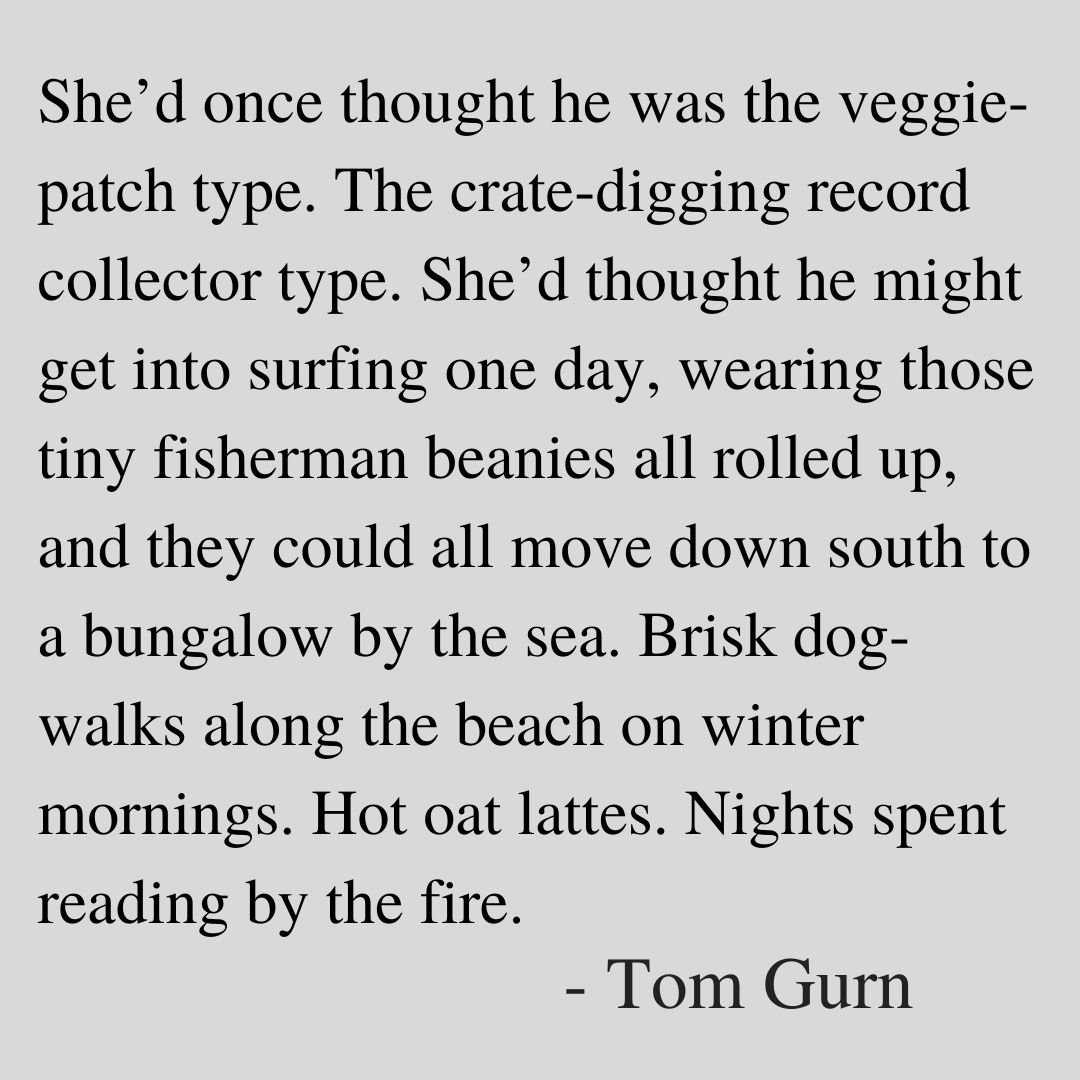Homemaking by Yen Radecki
Homemaking
No one would’ve expected it to be the architect’s wife.
Not even the architect’s wife herself would’ve expected it, if you’d asked her three months prior, when this kind of rumination was common among the housewives. The women would get together as the afternoons became evenings, waiting to see who would make it home before curfew, and wonder: who should we have married, if we’d wanted to live through this? The doctor was a common guess, or a military man of some description, but the architect’s wife thought that when it came--if it came--only the real cream of the crop would survive, top executives ushered away by personal security.
This suggestion caused some consternation, particularly amongst the women who considered themselves married to this fortunate elite. What about the wives of these executives? asked the accountant’s. The babies of their bodyguards? The architect’s wife’s reply was simple: if a man knew his job well enough to survive the thing that might come, but probably wouldn’t, then he didn’t have a wife or babies. Or if he did, he functionally didn’t, to the extent that their names wouldn’t even cross his mind as he hunkered down in his private bunker.
Whatever the outcome of the debate, they all agreed it wouldn’t be an architect. But when the thing came, three months later, the thing that probably wouldn’t but did, it was. Or rather, it was his home: the thing he’d sketched and modelled and made and remade, first in polygons then balsa wood then clay. It wasn’t an ostentatious home, unlike the accountant’s or the lawyer’s. It might’ve been, if it had been laid out normally, but the architect had designed the space to be vertical, all mezzanines and steps and alcoves; an Escheresque arrangement that created the illusion of more corners than surface. As a result each wall lay within easy reach, as though to better cradle its inhabitants, and while the lawyer’s wife might’ve found this cloying, to the architect’s it was comforting, and this more true now than it had ever been.
Yet when the thing had first come, that probably wouldn’t but did, the house had been in no state to be comforting. The temperatures had just begun to peek beneath freezing, and the architect’s home, built for warmth and movement and a hypothetical-if-never-entirely-realistic family, needed constant upkeep to keep standing. The wife, for her part, felt alarmingly similar. There were so many things that had been easy that were now difficult: things like eating, bathing, and sleeping. On bad nights, she would open the door just a crack and peer out at the distant city lights: no longer soft, blurry dots but great streaks of violent light as fires were started and tamed and then burnt out slowly, angry, ignored amidst rubble. This was happening far away enough that for the most part, the architect’s wife had to imagine it. Sometimes, she even imagined the lights getting closer, but she needn’t have worried. This was the Country, honey-suckled and hallowed, and they had traded away the fires for the long, unnameable dread.
The dread was more subtle, less apocalyptic in its bearing. It wasn’t visible, of course, over the privacy hedges and gently knolled driveways, but you still got a sense of it peering out the window: the neighbour’s house, ransacked; the lawyer’s wife, empty-lardered, driving into town and not coming back. Communication towers went down four months in, and power and water soon followed suit, and the architect’s wife learnt how to start the antique generator in the basement, and later, eventually, where her fingers would harden most from chopping wood. One day, looters came from the city in a bus once used for high-school athletes, and the architect’s wife learnt a new set of skills entirely, lessons those less fortunate first learn in the womb. Just where to stand to keep the slat of a stair from creaking; just how to breathe to make an occupied room seem empty. The architect had learnt to build the castle, perhaps, but it was his wife who learnt to defend it.
Later, in introspective moments, the architect’s wife would wonder how she’d done it. From her view out of the open doorway, whenever she dared open it, the neighbourhood seemed to have been razed, privacy hedges smoking like ashtrays. What quality had she possessed that the judge’s wife had so been lacking? And whatever it was, would it have been enough if the house hadn’t been so demanding? Though the architect’s wife had not spoken in weeks, the house talked to her near constantly, like an infant’s babbling: the creak of the logs peeling themselves to pieces in the grating, the susurration of air through boarded vents in the kitchen, so soft she might have imagined it. Perhaps she did, the way she sometimes imagined the house’s heartbeat beneath her in the evenings, the dull drum of it reverberating up into her belly as she lay sleeping; a second pulse living inside her, like a baby.
But it wasn’t a baby--more something fetal, alive only because she kept it living. At dawn, with the sun, the architect’s wife swept the ash from the fireplace, restacked the logs, and relit the kindling. A hot cloth coaxed ice away from the pipes and brushed frost from the tender leaves of the ivy claiming the attic. Under these ministrations, the house moaned its way to morning, and its tenants awoke alongside it: rats scuttling drowsily beneath the floorboards while the booklice, chewing ponderously, freed the wallpaper from the plaster. Tree roots stirred and grew below, pressing gently, eager, against the house’s foundations, while above, cob spiders drifted to and fro, scaling the wood beams like window washers on a building.
Of course, the architect’s wife didn’t know any of this. All she could feel was the house and its breathing. The architect had designed it to breathe, cognisant of the Country’s oppressive heat: each narrow hallway a wind-tunnel, each sharp corner a spot for air to pool and release. In the quiet, deadly days, the architect’s wife would stop and listen to it, ears straining as though to pick out words in a foreign language. It was important to preserve the silence, to better check that no one had broken it, and though the driveway to the architect’s home was long and solitary, since the looters, the quiet had lost credibility. At times, when she doubted it the most, the architect’s wife thought about getting in the car she and the architect had owned and going as far as she could go. At times like these, she forgot she was waiting: forgot she was expecting her husband to return and make things right again, and could only see the future stretch out indeterminably, unchanged--if she was lucky. Sometimes, she’d get as far as the foyer before a log would splinter in the fireplace, calling her back with a gentle rebuke. The fire needed tending; the garden, watering. She could wait for the architect, or not wait, but either way, the house was not waiting.
Eventually, the architect’s wife forgot to wait and began living. The architect wasn’t coming back: a fact that grew, gradually, less and less bitter. He hadn’t come back in years, and the house was a fair enough inheritance to forgive it. Certainly, the house was a fairer thing than he had been. It kept her warm and safe in return for caregiving, and wasn’t this the same pact she had struck with the architect, the same pact all housewives made, and then inevitably found lacking? With the house, it wasn’t lacking. A house loved and expected care in return, but a person could love, would love, long after care had been rescinded. A house was more exacting.
And so the architect’s wife remained, the sole lighthouse keeper in a freshly christened wasteland. It seemed likely the others had fled, those who’d survived, and she wished them well, though without much optimism. They did not have houses, where they had gone; they would not have things to care for and to care for them in turn. Another woman might’ve adopted a cat, but the architect’s wife was no other woman, of course, but the wife of an architect. Back when she was young, when they had still been courting, she’d learnt to love the archways as reflected in his eyes. He had shown her his models: shown her how space could be organised and made tangible, and then he’d built them a home as intimate as a turtle’s and crept out from under it every morning. Home building was his pursuit, not making: the wrangling of the animal, not its tending. When she was young, she hadn’t minded. The wrangling was more exciting, after all, and care not so hard to come by then.
By the time the thing had arrived, that everyone both had and hadn’t been expecting, care had been facing a quick extinction. It was a paucity of care that had caused it, really, and she’d been guilty, too, as had the lawyer’s wife and the politician’s; guilty by omission, if not outright complicit. She had wanted, after all, and taken without giving, and there’d been so much lost in the trade the only solution had seemed to keep on taking.
Now, things were different. The architect’s wife felt that survival was a great responsibility. There was every chance that eventually, once the dust had settled completely, the top executives might make an appearance: stumbling sandy-eyed from their bunkers at last, unchanged, looking for something to start taking. Only there wouldn’t be anything, and someone would have to teach them making.
Executive Producers
Daniel Henson
Sue White






